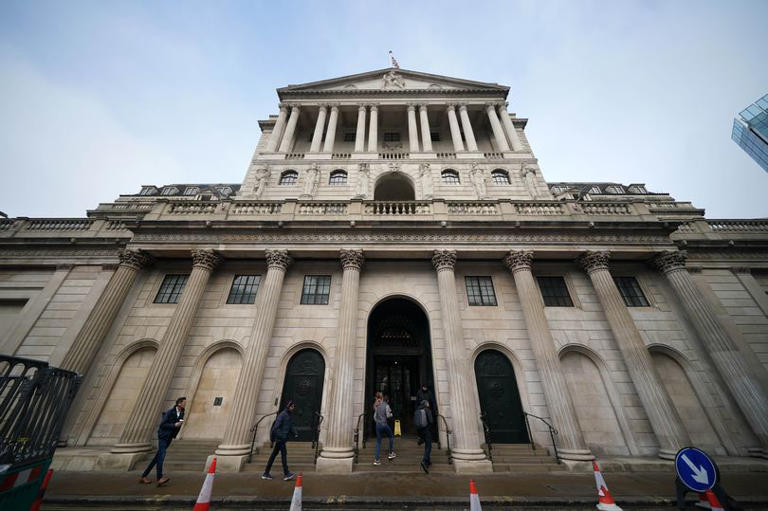Bank of England Interest Rates: Understanding the Factors Influencing Monetary Policy
Learn about the current stance of Bank of England interest rates and the factors influencing their decisions, including inflation pressures and labor market dynamics.

Bank of England Interest Rates: An Overview
Bank of England interest rates play a crucial role in shaping the UK’s economic landscape. These rates, set by the Bank’s Monetary Policy Committee (MPC), influence borrowing costs for consumers and businesses, impacting spending, investment, and inflation. In this article, we delve into the complexities surrounding the Bank of England’s decision-making process regarding interest rates.
Understanding the Current Situation
At present, the Bank of England’s interest rates stand at 5.25%, marking their highest level since 2008. This decision reflects the Bank’s cautious approach in addressing inflationary pressures while considering broader economic conditions. However, recent discussions within the MPC have raised questions about the timing of potential rate adjustments.
Inflation Pressures: A Key Consideration
One of the primary factors influencing the Bank of England’s stance on interest rates is inflation. Despite efforts to curb inflationary trends, persistent pressures have continued to pose challenges. The Bank closely monitors consumer price inflation, which is expected to have slowed to near the 2% target in April. However, services price inflation remains elevated, driven by robust wage growth.
Labor Market Dynamics: Unraveling the Puzzle
Another critical aspect influencing the Bank’s decision-making process is the state of the labor market. Despite sluggish economic performance, unemployment rates remain low. This phenomenon has puzzled economists, leading to discussions about potential labor hoarding by employers. The retention of excess staff amid uncertainties about future labor availability complicates the assessment of inflationary pressures and the need for rate adjustments.
The Dilemma of Rising Wages
In addition to low unemployment, wage growth has exceeded expectations, contributing to sustained inflationary pressures. The significant rise in wages, particularly in the service sector, has added to the complexity of the situation. The Bank of England must carefully evaluate the implications of wage inflation on overall price levels and economic stability.
Policy Implications: Navigating Uncertain Waters
Given the multifaceted nature of the challenges facing the UK economy, the Bank of England must tread carefully in its decision-making process. While some MPC members advocate for maintaining the current interest rate level to address inflation concerns, others argue for a more proactive approach, including potential rate cuts.
Market Expectations and Speculations
Financial markets are closely monitoring developments regarding Bank of England interest rates. Speculation abounds about the possibility of rate cuts in the near future, with some predicting a quarter-point reduction as early as next month. However, Governor Andrew Bailey has emphasized that rate adjustments are neither guaranteed nor ruled out, underscoring the need for prudence and careful consideration.
Looking Ahead: The Path Forward
As the Bank of England continues to assess economic data and monitor inflation trends, the path forward remains uncertain. While the possibility of rate cuts looms on the horizon, the Bank must balance the need for stimulating economic growth with the imperative of curbing inflationary pressures. The forthcoming official figures on consumer price inflation will provide valuable insights into the evolving economic landscape and shape future policy decisions.
Conclusion
In conclusion, Bank of England interest rates are a critical tool in managing the UK economy, with far-reaching implications for consumers, businesses, and policymakers alike. The current juncture presents challenges, with inflationary pressures and labor market dynamics complicating the decision-making process. As the Bank navigates these uncertain waters, careful consideration of economic data and prudent policy adjustments will be essential in fostering sustainable economic growth while ensuring price stability.
ALSO READ:
“Santander Switching Offer: Get £175 with a Simple Switch!”


